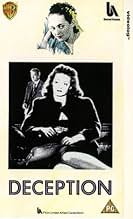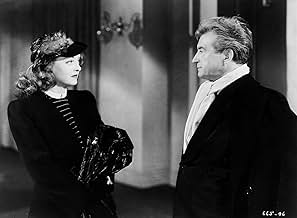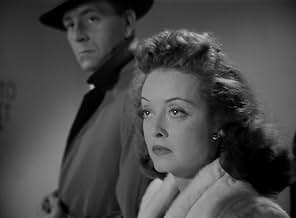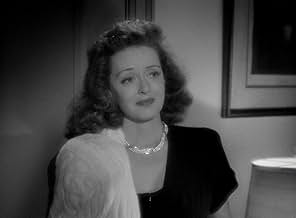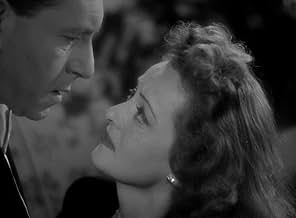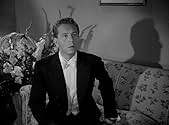IMDb RATING
7.1/10
4.5K
YOUR RATING
After marrying her long-lost love, a musician finds the relationship threatened by a wealthy composer who is besotted with her.After marrying her long-lost love, a musician finds the relationship threatened by a wealthy composer who is besotted with her.After marrying her long-lost love, a musician finds the relationship threatened by a wealthy composer who is besotted with her.
- Director
- Writers
- Stars
- Awards
- 4 wins total
John Alban
- Concertgoer
- (uncredited)
Russell Arms
- Music Student
- (uncredited)
Lois Austin
- Norma - Wedding Guest
- (uncredited)
Patricia Barry
- Music Student
- (uncredited)
Brandon Beach
- Concertgoer
- (uncredited)
Lulu Mae Bohrman
- Restaurant Diner
- (uncredited)
Paul Bradley
- Concertgoer
- (uncredited)
James Carlisle
- Restaurant Diner
- (uncredited)
Gertrude Carr
- Wedding Guest
- (uncredited)
James Conaty
- Well-Wisher at Concert
- (uncredited)
Marcelle Corday
- Hat Check Woman
- (uncredited)
Gino Corrado
- Waiter
- (uncredited)
Suzi Crandall
- Music Student
- (uncredited)
- Director
- Writers
- All cast & crew
- Production, box office & more at IMDbPro
Featured reviews
If you're in the mood for a flamboyant Bette Davis-Claude Rains melodrama, you've got to see this one. Rains all but steals the film as the genius composer with some of the cruelest and wittiest lines ever uttered by this talented actor. Bette matches him with a finely controlled display of emotions and Paul Henreid is altogether convincing in a rather thankless role as her ex-lover who re-enters her life and incurs the wrath of Rains. For the cello concerto, Erich Wolfgang Korngold provides a robust, darkly thrilling piece of work that gets the full treatment toward the climax of the story. A very satisfying look at Davis and Rains at the peak of their powers. I love the comment by Cecilia Ager of PM who wrote: "It's like grand opera, only the people are thinner. I wouldn't have missed it for the world." If you're a Claude Rains fan--and there are MANY, MANY of them out there--you might have read my profile on his career in CLASSIC IMAGES, a long article with many photos that appeared in the December 2000 issue.
On a recent Turner Classic Movies broadcast, I finally caught up with all of this one, having seen only snippets of it before. Everybody involved was obviously given free rein, from the lead actors all the way through to every behind-the-scenes artisan, the best that Warner Brothers could muster at the time. Claude Rains and Bette Davis spar in magnificent style, with Rains, stroking the fur of his pet Siamese cat, winning by default, since he was given a role which is so over-the-top that, in the hands of a lesser actor, it would have verged on outrageous camp. (Check out the rococo New York brownstone mansion in which he's ensconced, more magnificent than anything a lesser studio could provide for a monarch in a story involving royalty!)
Poor Paul Henreid has a particularly thankless role to play, swinging like an erratic pendulum between jealous tantrums and thoroughly deceived naïveté, but his simulations of the movements of a top-flight cello musician are convincing enough to allow all to be forgiven.
Erich Wolfgang Korngold's music is probably the film's chief asset and it probably sounded superb over the monophonic sound systems when this film was released, since Warners' sound technicians were the best in Hollywood back then. (Unfortunately the soundtrack during the telecast I heard was very wobbly - a real disappointment. Wonder what the problem was, since this certainly isn't the case with many films dating even further into the past.)
While it may not be a delicacy fit for a cinematic gourmet, it's more than passably entertaining for its nearly two-hours running time.
Poor Paul Henreid has a particularly thankless role to play, swinging like an erratic pendulum between jealous tantrums and thoroughly deceived naïveté, but his simulations of the movements of a top-flight cello musician are convincing enough to allow all to be forgiven.
Erich Wolfgang Korngold's music is probably the film's chief asset and it probably sounded superb over the monophonic sound systems when this film was released, since Warners' sound technicians were the best in Hollywood back then. (Unfortunately the soundtrack during the telecast I heard was very wobbly - a real disappointment. Wonder what the problem was, since this certainly isn't the case with many films dating even further into the past.)
While it may not be a delicacy fit for a cinematic gourmet, it's more than passably entertaining for its nearly two-hours running time.
Bette Davis believed her true love Paul Henreid was killed in battle. When he returns, their romance is rekindled But during the time he was believed dead, Bette had become involved with composer Claude Rains. Claude's not very happy losing her to Henreid. So Bette must take steps to ensure he doesn't ruin their happiness.
Paul Henreid is the weak link in this dynamic trio of stars. But, to be fair, he doesn't have the juiciest part. Bette is at her soap operatic best here, serving up her role with a hefty side of ham. Claude Rains owns every scene he's in. Like Bette, the man knew his way around a melodramatic role. Unlike Bette (usually), Rains could keep from going over-the-top. He's a better actor, quite frankly. But stars like Bette Davis and Joan Crawford aren't beloved for their realistic acting. People like them for their enjoyable excesses. They were the precursors to the television soap opera stars that would come decades later.
Wonderful sets and costumes, filmed beautifully. Glamorous production from Warner Bros. Loved the Erich Wolfgang Korngold score, as well as the other classical pieces featured. It's a fine melodrama with touches of film noir. Great performances from Davis and Rains. Fans of both will enjoy this one.
Paul Henreid is the weak link in this dynamic trio of stars. But, to be fair, he doesn't have the juiciest part. Bette is at her soap operatic best here, serving up her role with a hefty side of ham. Claude Rains owns every scene he's in. Like Bette, the man knew his way around a melodramatic role. Unlike Bette (usually), Rains could keep from going over-the-top. He's a better actor, quite frankly. But stars like Bette Davis and Joan Crawford aren't beloved for their realistic acting. People like them for their enjoyable excesses. They were the precursors to the television soap opera stars that would come decades later.
Wonderful sets and costumes, filmed beautifully. Glamorous production from Warner Bros. Loved the Erich Wolfgang Korngold score, as well as the other classical pieces featured. It's a fine melodrama with touches of film noir. Great performances from Davis and Rains. Fans of both will enjoy this one.
One of the few actors of Bette Davis' time who could match her screen intensity was Claude Rains. Paul Henreid is paired with Davis as her true love for another convincing romance. But, the script-stealing scene is between Davis and Rains. Matched penultimately perfect for the picture, Davis and Rains match each other's most intense acting skills during a major bedroom blow-out between them. I live to watch that scene over and again for its acting mastery.
Since Deception is about three classical music artists, the classical music score makes Deception's choice script musically enhanced to a classy degree. I love how Rains takes "the 4th Warner Brother's" acting intensity and levels it with his own. Even Bogie couldn't do that when staged with Davis! Don't miss this tightly wound triangulation with Henreid underplaying himself as his role calls for.
Since Deception is about three classical music artists, the classical music score makes Deception's choice script musically enhanced to a classy degree. I love how Rains takes "the 4th Warner Brother's" acting intensity and levels it with his own. Even Bogie couldn't do that when staged with Davis! Don't miss this tightly wound triangulation with Henreid underplaying himself as his role calls for.
I'll dispense with the details of the plot and move directly to Mr. Rains' performance as Hollenius the composer in this musico-melodrama.
This is his show although Davis and Henreid attempt to hold their own in this film.
His flair for manipulation and deception, hence the title, dominates the film.
He does a great job of it, driving everyone crazy with his shenanigans and jealousy.
The cinematography is well done and the story's setting in the world of post-WW II classical/modern music is interesting.
I noted that early on, for instance, as Henreid finished a performance, audience members asked him who his favorite living composer was..."Sibelius...or Shostakovich...?" No mention of Aaron Copland or the many other composers alive at the time.
Hollenius' work as a composer was a curious mix of tonal, traditional and slightly atonal influences, attempting to display "modern" music but watered down to keep the audience and us interested.
The mimicking of the piano and cello performances by all three actors was fairly well done.
I found it quite interesting too that both Davis and Rains were not "starving artists" like Henreid. Opulent apartments and lifestyles for piano teachers and composers were not common, but these two were well-off in an even garish sense.
This was not the reality of the time in the music world.
I'd recommend this film if you're a Rains or Davis fan. Henreid was not used for his full potential.
This is his show although Davis and Henreid attempt to hold their own in this film.
His flair for manipulation and deception, hence the title, dominates the film.
He does a great job of it, driving everyone crazy with his shenanigans and jealousy.
The cinematography is well done and the story's setting in the world of post-WW II classical/modern music is interesting.
I noted that early on, for instance, as Henreid finished a performance, audience members asked him who his favorite living composer was..."Sibelius...or Shostakovich...?" No mention of Aaron Copland or the many other composers alive at the time.
Hollenius' work as a composer was a curious mix of tonal, traditional and slightly atonal influences, attempting to display "modern" music but watered down to keep the audience and us interested.
The mimicking of the piano and cello performances by all three actors was fairly well done.
I found it quite interesting too that both Davis and Rains were not "starving artists" like Henreid. Opulent apartments and lifestyles for piano teachers and composers were not common, but these two were well-off in an even garish sense.
This was not the reality of the time in the music world.
I'd recommend this film if you're a Rains or Davis fan. Henreid was not used for his full potential.
Did you know
- TriviaPaul Henreid could not play the cello. While he was able to fake it in the long shots, to achieve the illusion in closeup, he wore a special jacket with no sleeves and holes for two real cellists to insert their arms - one to bow, and one to accurately finger the music - while seated behind him, out of shot.
- GoofsWhile Christine, alone in her studio, is talking to Alexander Hollenius on the telephone, the highly visible shadow of a crew member is moving back and forth across the piano behind her.
- Quotes
Alexander Hollenius: [snatches his bleeding hand away from Christine] Like all women - white as a sheet at the sight of a couple of scratches... calm and smiling like a hospital nurse in the presence of a mortal wound... Good night!
- ConnectionsEdited into Dead Men Don't Wear Plaid (1982)
- SoundtracksHollenius' Cello Concerto
Music by Erich Wolfgang Korngold
Performed by Paul Henreid (dubbed by Eleanor Slatkin)
- How long is Deception?Powered by Alexa
Details
- Runtime
- 1h 55m(115 min)
- Color
- Aspect ratio
- 1.37 : 1
Contribute to this page
Suggest an edit or add missing content




